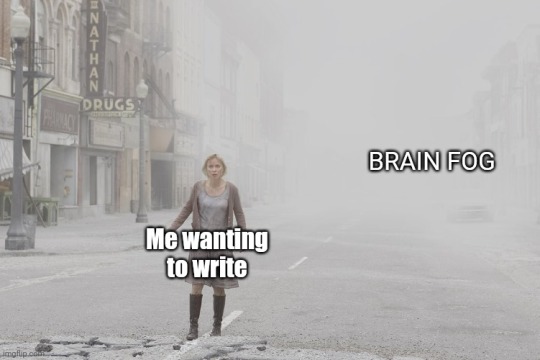Text
Now that is an anime I'd watch!
okay hear me out
a magical girl anime
but with moms instead
338K notes
·
View notes
Text
Gonna have to watch this now
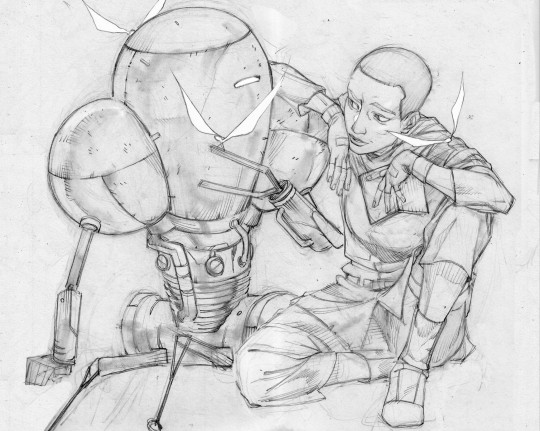
also please check out scavengers reign, I love these two so much it physically hurts me
10K notes
·
View notes
Text
YEAH

Surely, you think, this is an old post.
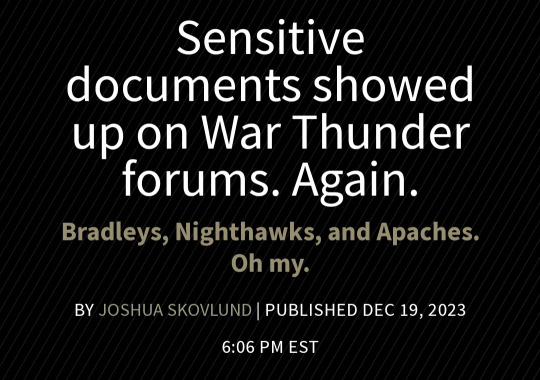
It's new as of December 2023! Congrats on your (checks notes) 14th breach, War Thunder!
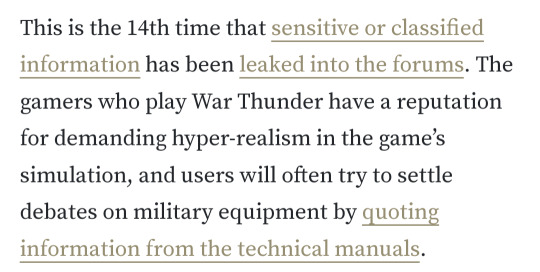
Fucking incredible.
49K notes
·
View notes
Text
YEAH

Surely, you think, this is an old post.

It's new as of December 2023! Congrats on your (checks notes) 14th breach, War Thunder!

Fucking incredible.
49K notes
·
View notes
Note
today is december 21st aka "kingston brown makes breakfast day" so make yourself some breakfast


Everyone make yourself some brakfast
183 notes
·
View notes
Text
From Locus in 1991 on tour, Terry Pratchett & I talk about how Good Omens was written...
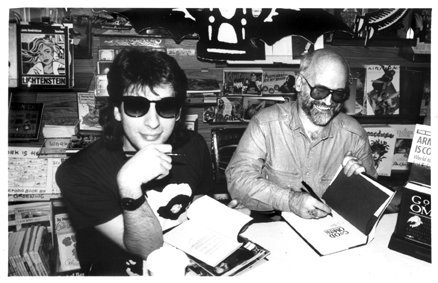
Pratchett & Gaiman: The Double Act
Neil Gaiman: “The first radio interview we did in New York, the interviewer was asking us ‘Who is Agnes Nutter? What is her history? Is Armageddon happening?” and so on and so forth. After a while, we twigged he hadn’t realized this was fiction. He thought he’d been given two kooks who’d come across these old prophecies and were predicting that the world was going to be ending.“
Terry Pratchett: "Once we realized, it was great fun. We could take over the interview, since we knew he didn’t know enough to stop us.”
NG: “And at that point, we just did the double act.”
NG: “We’re working on seeing how many smart-alec answers we can come up with when people ask us how we collaborated.”
TP: “I wrote all the words, and Neil assembled them into certain meaningful patterns… What it wasn’t was a case of one guy getting 2/3 of the money and the other guy doing ¾ of the work.”
NG: “It wasn’t, somebody writes a three-page synopsis, and then somebody else writes a whole novel and gets their name small on the bottom.”
TP: “That isn’t how we did it, mainly because our egos were fighting one another the whole time, and we were trying to grab the best bits from one another.”
NG: “We both have egos the size of planetary cores.”
TP: “Probably the most significant change which you must have noticed [between the British and American editions] is the names get the other way 'round. They’re the wrong way 'round on the American edition [where Gaiman is listed first] –”
NG: “They’re the wrong way 'round on the English edition.”
TP: “Both of us are prepared to admit the other guy could tackle our subject. Neil could write a 'Discworld’ book, I could do a 'Sandman’ comic. He wouldn’t do a good 'Discworld’ book and I wouldn’t do a good 'Sandman’ comic, but –”
NG: “– we’re the only people we know who could even attempt it.”
TP: “I have to say there’s a rider there. I don’t think either of us has that particular bit of magic, if that’s what it is, that the other guy puts into the work, but in terms of understanding the mechanisms of how you do it, I think we do.”
NG: “There’s a level on which we seem to share a communal undermind, in terms of what we’ve read, what we bring to it.”
TP: “In fact, people that have read a lot of the 'Discworld’ books and a lot of the 'Sandman’ comics will actually find, for example, Neil put into one of the 'Sandman’ comics a phrase lifted out of a 'Discworld’ book. I spotted it in a shop and said, 'You bastard! You pinched my sentence. Everyone liked that line, and you pinched it.’”
So how did the collaboration on Good Omens begin?
TP: “Neil wrote several thousand words a couple of years ago, which was part of the main plot of Good Omens.”
NG: “I didn’t know what happened next, so I put it aside and I showed it to Terry. One day I got this phone call from Terry, saying 'Remember that plot? I know what happens next. Do you want to collaborate on it, or do you want to sell it to me?’ And I said, 'I’ll collaborate, please.’”
TP: “Best decision he ever made! I didn’t want to see a good idea vanish. It turned out, more and more things kind of accreted 'round it as the book was written. Also, Neil went and lost them anyway, so it all had to be retyped.”
NG: “I’d lost it on disk, so I gave him a hard copy, which meant he had to type it in. He kept changing it.”
TP: “I changed it so I could make the next bit work. The thing kind of jerked forward quite quickly, as both of us raced one another to the next good bit, so we would have an excuse to do it. Both of us cornered certain plot themes which we stuck to like glue.”
NG: “Like the reluctance with which I handed over the Four Horsepersons of the Apocalypse to Terry when they got to the airbase.”
TP: “I seldom let Neil touch any of the bits involving Adam Young himself.”
NG: “When we got to roughly the end, we could actually see which characters we hadn’t written. So we made a point of going in and writing at least one or two scenes with any of the characters that up until then we hadn’t written.”
TP: “Insofar as there’s any pattern at all, we worked out what the themes were and then we each took a theme and wove that particular strand.”
NG: “The other pattern, of course, was that you’d do your writing in the morning and I’d do mine late at night.”
TP: “Which means there was always someone, somewhere, physically writing Good Omens.”
NG: “It took nine weeks.”
TP: “We look upon Good Omens as a summer job. The first draft for nine weeks was sheer, unadulterated fun. Then there were nine months of rehashing, then there was the auction.”
NG: “When you have situations when you’ve got three agents, five publishers, all that kind of stuff….”
TP: “Our friendship survived only because we had other people to shout at. So I could say, 'Take that, you bastard!’ and hit his agent.”
NG: “One thing Terry taught me, when we were writing the book together, was how not to do it. Too many funny books fail because people throw every single joke they can think of in, and have an awful lot of fun, and eventually it just becomes a collection of gags.”
TP: “The big problem you face if you’re working collaboratively on a funny book is that you start with a gag and it’s great, it’s very amusing, but with the two of you discussing it, eventually it’s not good anymore. It’s an old gag from your point of view, so you avoid it and you take it further and further. What you’re putting in is a kind of specialized humor for people who work with humor. There’s an old phrase, 'Good enough for folk music.’ As you work, you have to stand back and say, 'Never mind whether we are bored with this particular gag, is the reader going to be bored with it, coming to it fresh?’”
NG: “One of the great things about humor is, you can slip things past people with humor, you can use it as a sweetener. So you can actually tell them things, give them messages, get terribly, terribly serious and terribly, terribly dark, and because there are jokes in there, they’ll go along with you, and they’ll travel a lot further along with you than they would otherwise.”
TP: “The book has got its gags, and we really enjoyed doing those, but the core of the book is where Adam Young has to decide whether to fulfill his destiny and become the Antichrist over the smoking remains of the Earth, or to decide not to. He’s got a choice, and so have we. So to that extent I suppose he does symbolize humanity.”
TP: “Bear in mind that we wrote Good Omens while the Salman Rushdie affair was really just coming to a boil in the UK. But no one’s going to go around burning copies of Good Omens, no on would think about that.”
NG: “Yet everything is blasphemous. Technically speaking, Good Omens is blasphemous against religious order, as blasphemous as you can get. And Gollancz have just bunged it in for the big religious award in the UK, which we find very strange. They actually asked the archbishop of Canterbury to send vicars 'round to have serious tea with us.”
(More at http://www.locusmag.com/2006/Issues/1991_Gaiman_Pratchett.html)
2K notes
·
View notes
Text
Oh, I would love a Christmas Danny
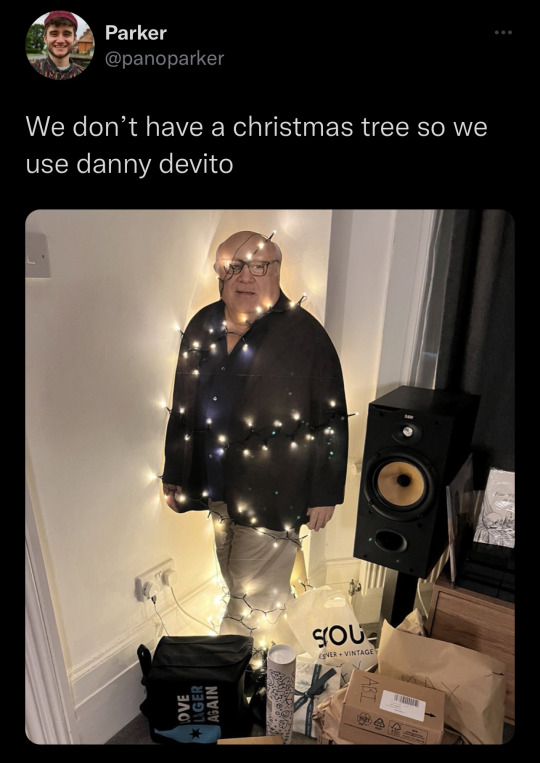
63K notes
·
View notes
Text
'...“It’s fun playing bad, but actually he’s not,” the actor says, smiling as he reflects on his character, Crowley. “He’s a villain with a heart. The amount of really evil things he does are vanishingly small.”
...As it always has, “Good Omens” dissects the view of good and evil as absolutes, showing viewers that they are not as separate as we were led to believe growing up. Aziraphale and Crowley’s long-standing union is proof of this. The show also urges people to look at what defines our own humanity. For Tennant — who opted to wear a T-shirt emblazoned with the words “Leave trans kids alone you absolute freaks” during a photocall for Season 2 — these themes are more important now than ever before.
“In this society that we’re currently living in, where polarization seems ever more present, fierce and difficult to navigate. Negotiation feels like a dirty word at times,” he says, earnestly. “This is a show about negotiation. Two extremes finding common ground and making their world a better place through it. Making life easier, kinder and better. If that’s the sort of super objective of the show, then I can’t think of anything more timely, relevant or apt for the rather fractious times we’re living in.”
“Good Omens” is back by popular demand for another season. How does it feel?
It’s lovely. Whenever you send something out into the world, you never quite know how it will land. Especially with this, because it was this beloved book that existed, and that creates an extra tension that you might break some dreams. But it really exploded. I guess we were helped by the fact that we had Neil Gaiman with us, so you couldn’t really quibble too much with the decisions that were being made. The reception was, and continues to be, overwhelming.
Now that you’re no longer bound by the original material that people did, perhaps, feel a sense of ownership over, does the new content for Season 2 come with a sense of freedom for you? This is uncharted territory, of sorts.
That’s an interesting point. I didn’t know the book when I got the script. It was only after that I discovered the worlds of passion that this book had incited. Because I came to it that way, perhaps it was easier. I found liberation from that, to an extent. For me, it was always a character that existed in a script. At first, I didn’t have that extra baggage of expectation, but I acquired it in the run-up to Season 1 being released… the sense that suddenly we were carrying a ming vase across a minefield.
In Season 2, we still have Neil and we also have some of the ideas that he and Terry had discussed. During the filming of the first one, Neil would drop little hints about the notions they had for a prospective sequel, the title of which would have been “668: The Neighbour of the Beast,” which is a pretty solid gag to base a book around. Indeed there were elements like Gabriel and the Angels, who don’t feature in the book, that were going to feature in a sequel. They were brought forward into Season 1. So, even in the new episodes, we’re not entirely leaving behind the Terry Pratchett-ness of it all.
It’s great to see yourself and Michael Sheen reunited on screen as these characters. Fans will have also watched you pair up for Season 3 of “Staged.” You’re quite the dynamic duo. What do you think is the magic ingredient that makes the two of you such a good match?
It’s a slightly alchemical thing. We knew each other in passing before, but not well. We were in a film together [“Bright Young Things,” 1993] but we’d never shared a scene. It was a bit of a roll of the dice when we turned up at the read-through for “Good Omens.” I think a lot comes from the writing, as we were both given some pretty juicy material to work with. Those characters are beloved for a reason because there’s something magical about them and the way they complete each other. Also, I think we’re quite similar actors in the way we like to work and how we bounce off each other.
Does the shorthand and trust the two of you have built up now enable you to take more risks on-screen?
Yes, probably. I suppose the more you know someone, the more you trust someone. You don’t have to worry about how an idea might be received and you can help each other out with a more honest opinion than might be the case if you were, you know, dancing around each other’s nervous egos. Enjoying being in someone’s orbit and company is a positive experience. It makes going to work feel pleasant, productive, and creative. The more creative you can be, the better the work is. I don’t think it’s necessarily a given that an off-screen relationship will feed into an on-screen one in a positive or negative way. You can play some very intimate moments with someone you barely know. Acting is a peculiar little contract, in that respect. But it’s disproportionately pleasurable going to work when it’s with a mate.
Fans have long discussed the nature of Crowley and Aziraphale’s relationship. In Season 2, we see several of the characters debate whether the two are an item, prompting them to look at their union and decipher what it is. How would you describe their relationship?
They are utterly co-dependent. There’s no one else having the experience that they are having and they’ve only got each other to empathize with. It’s a very specific set of circumstances they’ve been dealt. In this season, we see them way back at the creation of everything. They’ve known each other a long time and they’ve had to rely on each other more and more. They can’t really exist one without the other and are bound together through eternity. Crowley and Aziraphale definitely come at the relationship with different perspectives, in terms of what they’re willing to admit to the relationship being. I don’t think we can entirely interpret it in human terms, I think that’s fair to say.
Yet fans are trying to do just that. Do you view it as beyond romantic or any other labels, in the sense that it’s an eternal force?
It’s lovely [that fans discuss it] but you think, be careful what you wish for. If you’re willing for a relationship to go in a certain way or for characters to end up in some sort of utopian future, then the story is over. Remember what happened to “Moonlighting,” that’s all I’m saying! [Laughs]
Your father-in-law, Peter Davison, and your son, Ty Tennant, play biblical father-and-son duo Job and Ennon in Episode 2. In a Tumblr Q&A, Neil Gaiman said that he didn’t know who Ty’s family was when he cast him. When did you become aware that Ty had auditioned?
I don’t know how that happened. I do a bunch of self-tapes with Ty, but I don’t think I did this one with him because I was out of town filming “Good Omens.” He certainly wasn’t cast before we started shooting. There were two moments during filming where Neil bowled up to me and said, “Guess, who we’ve cast?” Ty definitely auditioned and, as I understand it, they would tell me, he was the best. I certainly imagine he could only possibly have been the best person for the job. He is really good in it, so I don’t doubt that’s true. And then my father-in-law showed up, as well, which was another delicious treat. In the same episode and the same family! It was pretty weird. I have worked with both of them on other projects, but never altogether.
There’s a “Doctor Who” cameo, of sorts, in Episode 5, when Aziraphale uses a rare annual about the series as a bartering tool. In reality, you’ll be reprising your Time Lord role on screen later this year in three special episodes to mark the 60th anniversary. Did you always feel you’d return to “Doctor Who” at some point?
There’s a precedent for people who have been in the series to return for a multi-doctor show, which is lovely. I did it myself for the 50th anniversary in 2013, and I had a wonderful time with Matt [Smith]. Then, to have John Hurt with us, as well, was a little treat. But I certainly would never have imagined that I’d be back in “Doctor Who” full-time, as it were, and sort of back doing the same job I did all those years ago. It was like being given this delightful, surprise present. Russell T Davies was back as showrunner, Catherine Tate [former on-screen companion] was back, and it was sort of like the last decade and a half hadn’t happened.
Going forward, Ncuti Gatwa will be taking over as the new Doctor. Have you given him any advice while passing the baton?
Oh God, what a force of nature. I’ve caught a little bit of him at work and it’s pretty exciting. I mean, what advice would you give someone? You can see Ncuti has so much talent and energy. He’s so inspired and charismatic. The thing about something like this is: it’s the peripherals, it’s not the job. It’s the other stuff that comes with it, that I didn’t see coming. It’s a show that has so much focus and enthusiasm on it. It’s not like Ncuti hasn’t been in a massive Netflix series [“Sex Education,”] but “Doctor Who” is on a slightly different level. It’s cross-generational, international, and has so much history, that it feels like it belongs to everyone.
To be at the center of the show is wonderful and humbling, but also a bit overwhelming and terrifying. It doesn’t come without some difficulties, such as the immediate loss of anonymity. It takes a bit of getting used to if that’s not been your life up to that point. I was very lucky that when I joined, Billie Piper [who portrayed on-screen companion, Rose] was still there. She’d lived in a glare of publicity since she was 14, so she was a great guide for how to live life under that kind of scrutiny. I owe a degree of sanity to Billie.
Your characters are revered by a few different fandoms. Sci-fi fandoms are especially passionate and loyal. What is it like being on the end of that? I imagine it’s a lot to hold.
Yes, certainly. Having been a fan of “Doctor Who” since I was a tiny kid, you’re aware of how much it means because you’re aware of how much it meant to you. My now father-in-law [who portrayed Doctor Who in the 80s] is someone I used to draw in comic strips when I was a kid. That’s quite peculiar! It’s a difficult balance because on one end, you have to protect your own space, and there aren’t really any lessons in that. That does take a bit of trial and error, to an extent, and it’s something that you’re sometimes having to do quite publicly. But, it is an honor and a privilege, without a doubt. As you’ve said, it means so much to people and you want to be worthy of that. You have to acknowledge that and be careful with it. Some days that’s tough, if you’re not in the mood.
I know you’re returning to the stage later this year to portray Macbeth. You’ve previously voiced the role for BBC Sounds, but how are you feeling about taking on the character in the theater?
I’m really excited about it. It’s been a while since I’ve done Shakespeare. It’s very thrilling but equally — and this analogy probably doesn’t stretch — it’s like when someone prepares for an Olympic event. It does feel like a bit of a mountain and, yeah, you’re daring to set yourself up against some fairly worthy competition from down the years. That’s both the challenge and the horror of doing these types of things. We’ve got a great director, Max Webster, who recently did “Life of Pi.” He’s full of big ideas. It’s going to be exciting, thrilling, and a little bit scary. I’m just going to take a deep breath.
Before we part ways, let’s discuss the future of “Good Omens.” Gaiman has said that he already has ideas for Season 3, should it happen. If you were to do another season, is there anyone in particular you’d love to work with next time around or anything specific you’d like to see happen for Crowley?
Oh, Neil Gaiman knows exactly where he wants to take it. If you’re working with people like Gaiman, I wouldn’t try to tamper with that creative void. Were he to ask my opinion, that would be a different thing, but I can’t imagine he would. He’s known these characters longer than me and what’s interesting is what he does with them. That’s the bit that I’m desperate to know. I do know where Crowley might end up next, but it would be very wrong if I told you.
[At this point, Tennant picks up a pencil and starts writing on a hotel pad of paper.]
I thought you were going to write it down for me then. Perhaps like a clandestine meeting on a bench in St James’ Park, but instead you’d write the information down and slide it across the table…
I should have done! I was drawing a line, which obviously, psychologically, I was thinking, “Say no more. You’re too tempted to reveal a secret!” It was my subconscious going “Shut the fuck up!”
3K notes
·
View notes
Text
I love seeing everyone else's ideas with this, and having them all be exactly the same vibe brings a tear of joy to my eye.
magical girls are real, and you have been chosen by a magical creature to become one. The only problem is your a full grown man with 2 kids and a wife.
#oh i love this#this has so much potential#writers#writers on tumblr#writing prompts#writeblr#writing inspiration
54K notes
·
View notes
Text
Well you're fucked now!
If this post gets to 3k notes by December 23 (my birthday), I will write a book and update you all on it
5K notes
·
View notes
Text
My truncheon looks nothing like this in real life, but eh close enough. You seem approachable, so yeah, totally.

@puki-mode-activated @spunch-bopp @assistant-of-pukicho @just-a-piece-of-trash
I WISH THIS TREND WAS MORE COMMON HERE SO IM STARTING ONE OKAY??!
4K notes
·
View notes
Text
SWEET POTATO PIE HERE I COME
The other day I was catching up with family and the topic got onto what medications people are taking (a lot of people in my family are on medication), and I mentioned offhand that I'm not taking anything and my dad was like, "what about for your fibromyalgia?"
I have never told any of these people that I have fibromyalgia. I don't think I've ever said the word 'fibromyalgia' out loud. Also, I do not, to my knowledge, have fibromyalgia. It's never been suspected, no doctor has ever suggested testing for it, it's never been on the radar at all.
I have no idea why my family thinks I have fibromyalgia. I corrected them and I don't think they believed me.
3K notes
·
View notes
Text
SWEET POTATO PIE HERE I COME
The other day I was catching up with family and the topic got onto what medications people are taking (a lot of people in my family are on medication), and I mentioned offhand that I'm not taking anything and my dad was like, "what about for your fibromyalgia?"
I have never told any of these people that I have fibromyalgia. I don't think I've ever said the word 'fibromyalgia' out loud. Also, I do not, to my knowledge, have fibromyalgia. It's never been suspected, no doctor has ever suggested testing for it, it's never been on the radar at all.
I have no idea why my family thinks I have fibromyalgia. I corrected them and I don't think they believed me.
3K notes
·
View notes
Text
Turns out that humans are painfully average compared to the rest of the galaxy. This fact is so embarasssing that humanity starts rapidly advancing technologically just to show those aliens who’s boss.
9K notes
·
View notes
